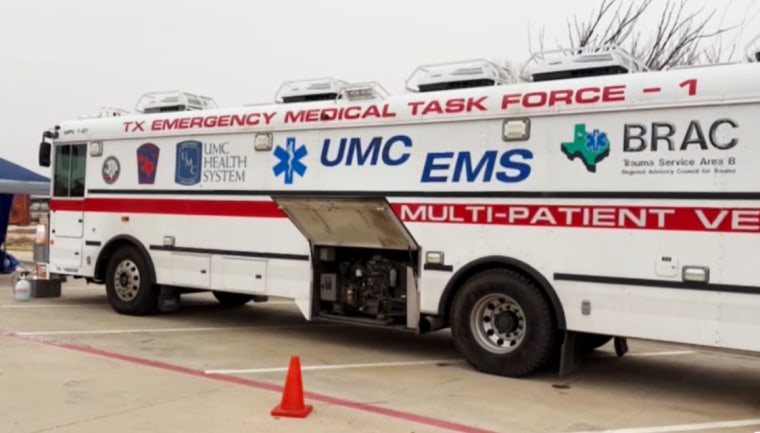As the measles outbreak in Texas keeps spreading, parents who previously chose not to vaccinate their children are now lining up to get their kids the shots needed to protect them from the serious illness.
“People are more and more nervous” as they watch the highly contagious virus spread in their communities, mostly among children, said Katherine Wells, director of public health for Lubbock’s health department. “We’ve vaccinated multiple kids that have never been vaccinated before, some from families that didn’t believe in vaccines.”
About half of the approximately 100 doses of measles-mumps-rubella vaccine (MMR) given at the health department last week were to kids who were unvaccinated, Wells said.
On Tuesday, the Texas Department of State Health Services reported that 124 cases of measles have been confirmed since late January, mostly in counties in West Texas, near the New Mexico border. So far, 18 patients have been hospitalized, often because they were having trouble breathing.
Of the 124 cases identified, 101 are babies, school-age kids or teenagers.
Nearly all were either unvaccinated or hadn’t received their second MMR shot, which is usually given around age 5. That dose, plus one given around a child’s first birthday, are 97% effective at preventing measles, according to the Centers for Disease Control and Prevention.
While that level of protection is extremely high, it’s not 100%. Five of the 124 people with measles in Texas said they’d had at least one dose of the MMR shot.
Measles is considered one of the most contagious viruses in the world. It’s spread through tiny respiratory particles that can live in the air or on surfaces for up to two hours after an infected person was there.
That’s why a mobile health care unit offering measles testing and vaccines for people who are not sick enough to be hospitalized has set up shop in emergency department parking lots in Lubbock and surrounding areas.
“We’re using the bus to keep them out of the hospital because measles is so contagious and airborne,” Chad Curry, training chief for the University Medical Center EMS, who is overseeing the mobile unit’s operations during the outbreak, said in an interview Tuesday. “We’re trying to lessen the blow.”

Starting Wednesday, Curry’s crew will offer immunoglobulin shots or infusions to people who’ve had a confirmed measles exposure and who may be at risk for complications.
Immunoglobulin, or IG, is an antibody that helps the immune system fight off infections. It can be given up to six days after a person was exposed to measles.
Growing worries
The fast-moving outbreak is certain to expand, health authorities said.
On Monday, the Texas Department of State Health Services alerted the public that a person infected with measles had traveled outside of the outbreak area to other parts of the state.
The person visited the University of Texas at San Antonio campus and a variety of restaurants and convenience stores like Buc-ee’s in other areas near the city.
Measles symptoms in the outbreak have been “textbook,” Wells said. Patients have had fevers up to 104 degrees, coughing, runny nose and red, irritated eyes. After that, they develop a rash that starts near the scalp and spreads down the body.
Symptoms may not appear until two weeks after a person is exposed.
It’s up to health officials now to do what’s called contact tracing. That means painstakingly tracking down anyone who was in those public spaces at the same time — or several hours afterward — to tell them about the exposure and give guidance on what they should do.
That’s on top of the ongoing investigations in the outbreak’s epicenter.
“My biggest concern right now is the manpower needed to do all of the contact tracing,” said Dr. Ronald Cook, chief health officer at the Texas Tech University Health Sciences Center in Lubbock and health authority for the city.
“We’re managing right now, but if this grows any bigger, we’re going to need some more help.”


